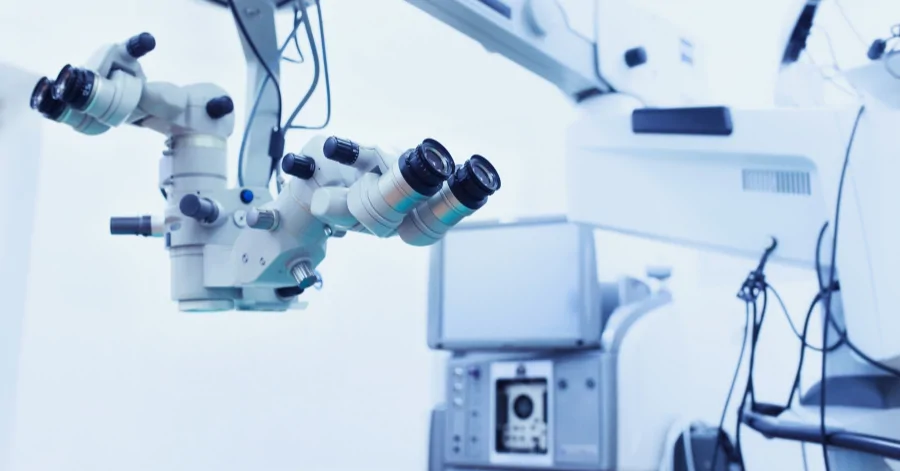In the dynamic world of automotive engineering, change is the only constant. With the advent of Industry 4.0 and the continued digitization on the value chain, marked by advancements in technologies like IoT, AI, robotics, cloud computing, big data and additive manufacturing, the automotive industry is undergoing a profound transformation. This not only impacts the way vehicles are designed and manufactured but also significantly influences the recruitment landscape for engineering talent.
The Rise of Industry 4.0 in Automotive
Industry 4.0, often dubbed the Fourth Industrial Revolution, represents a fusion of digital, physical, and biological systems. In the automotive sector, this translates to smarter, more connected vehicles that leverage cutting-edge technologies to enhance performance, safety, and efficiency.
Impact on Automotive Engineering Recruitment
As automotive companies embrace Industry 4.0 technologies, the demand for engineers with expertise in these areas is on the rise. Let's break down how each technology is reshaping the recruitment landscape:

1. Internet of Things (IoT)
Automotive IoT has opened up new opportunities for car manufacturers and buyers worldwide. It enables vehicles to communicate and transfer data, infrastructure, and external devices, paving the way for advancements like connected cars and smart transportation systems.
Engineers proficient in IoT play a crucial role in developing these innovative solutions, driving the need for recruitment agencies to identify and attract such talent.

2. Artificial Intelligence (AI)
AI-powered applications are revolutionising various aspects of automotive engineering, from predictive maintenance and autonomous driving to natural language processing in infotainment systems. In fact, car manufacturers use artificial intelligence in almost all areas of automotive engineering. Examples of AI in the automotive industry include industrial robots that construct a vehicle and autonomous cars that use machine learning and image processing to navigate through traffic.
Companies seek engineers well-versed in machine learning, computer vision, and data science to drive these initiatives forward, underscoring the importance of targeted recruitment efforts.

3. Robotics
Robotics technologies are increasingly integrated into automotive manufacturing processes, enhancing precision, efficiency, and safety. This technology can be re-programmed rapidly and set up for multiple uses so that no valuable time is lost. The flexibility of robots is thus a benefit that is particularly recognised and appreciated by vehicle manufacturers.
Engineers with expertise in robotics play a vital role in designing and implementing automated systems, driving the demand for recruitment agencies to source such specialised talent.

4. Cloud Computing
As vehicles continue to become more connected and autonomous, the demand for advanced computing power, real-time data analytics and seamless communication is more important than ever before. Cloud computing enables automotive companies to store, process, and analyse vast amounts of data with flexibility and scalability.
Engineers skilled in cloud technologies facilitate seamless integration of cloud-based solutions into automotive systems, driving efficiency and innovation in recruitment practices.

5. Additive Manufacturing
Additive manufacturing (AM), or 3D printing, revolutionises the prototyping and production of automotive components, offering benefits in terms of cost, time, and design flexibility. It can support component development by finding and solving problems in the design of components before production tools are manufactured. General Motors, for example, have been using AM for 3 decades already.
Recruitment companies play a pivotal role in identifying engineers with expertise in additive manufacturing techniques, enabling companies to leverage this disruptive technology effectively.

6. Big Data Analytics
The automotive industry generates vast amounts of data, from vehicle performance metrics and customer preferences to supply chain logistics. Big data analytics empowers companies to extract actionable insights from this data, enabling informed decision-making and driving continuous improvement.
Engineers with proficiency in data analysis and interpretation are in high demand, prompting recruitment agencies to scout for candidates with these specialized skills.
Successfully Managing the Recruitment Process
For automotive companies navigating the complex terrain of Industry 4.0, partnering with a specialised recruitment company like Amoria Bond can be a strategic advantage. Our team of experts possesses deep industry knowledge and a robust network of advanced engineering talent, ensuring that clients have access to the skills they need to thrive in the digital era.

Hire Great Talent with Amoria Bond
As Industry 4.0 reshapes the automotive landscape, the demand for engineers skilled in IoT, AI, and big data continues to grow. By understanding the impact of these technologies on recruitment practices, companies can position themselves for success in an increasingly competitive market.
With the support of a trusted recruitment partner like Amoria Bond, finding the right talent to drive innovation and growth becomes a strategic advantage in the journey towards automotive excellence. Contact my team and I today to learn more!





